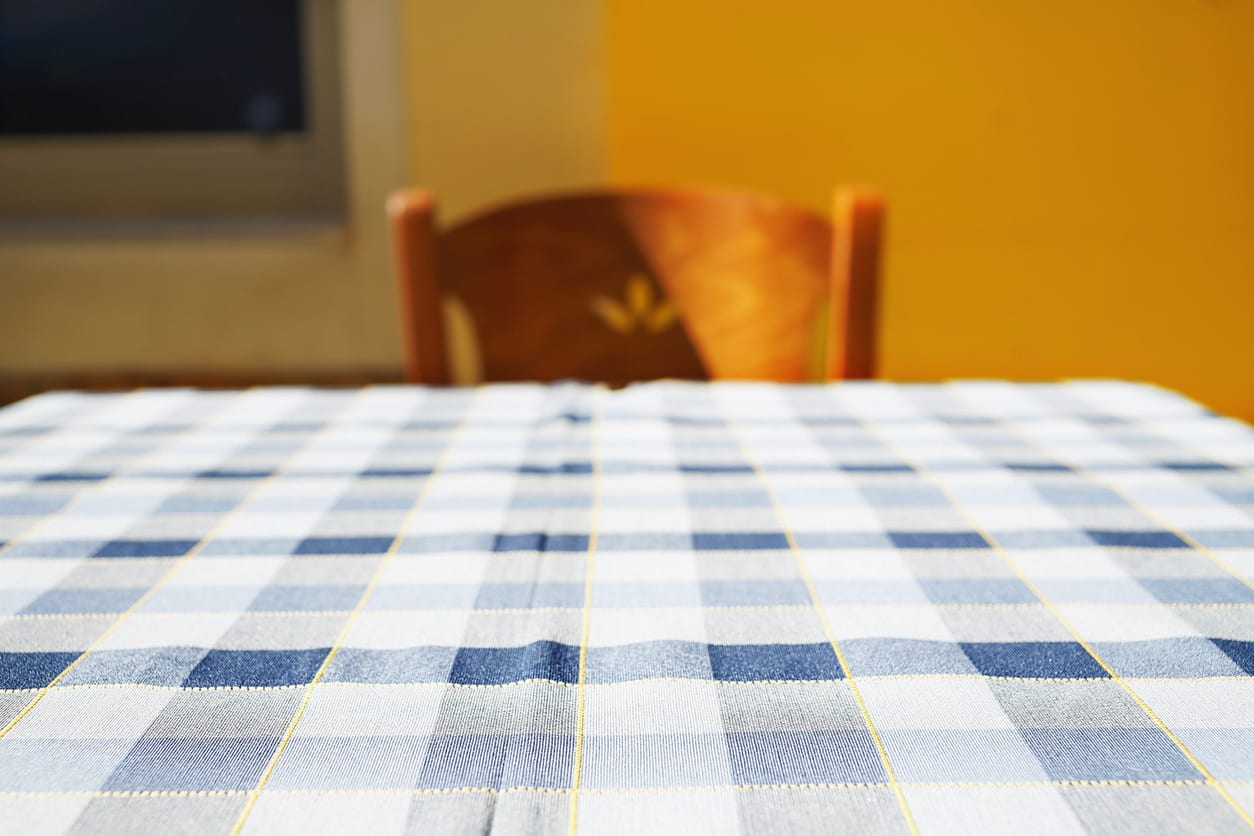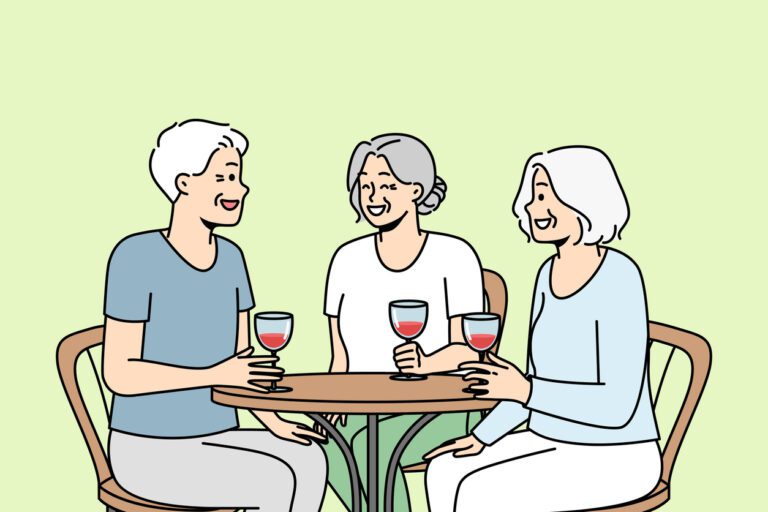They were at it again.
“One hour, 15 minutes,” said Dad. Mum smirked at him.
“Six months,” she replied. “Three hours. Final offer.” “I’ll go with four days.” “You’re on.”
Dad squeezed Mum’s shoulder and they both looked over at the dining chair sitting on our back doorstep. It was a rough sort of chair. Really quite ordinary and old – with scuffed wooden legs and armrests, and a navy blue vinyl backrest and seat that looked like someone had taken to them with a knife.
Dad lifted it up in both arms. Kinda like he was hugging it. “It’s a beauty. Someone’s lucky day, that’s for sure.”
I followed him up to the road, where he placed it on the grass verge next to our driveway. He adjusted it several times until it faced square to the footpath – with a little cluster of dandelions swinging their heads around one of the front legs. Then he put his sign on it, which said ‘free to a good home’. He was pleased with this sign, with its black painted scrawl on brown hardiplank, as he’d used it four times and no-one had taken it.
I asked him, “What would be a good home, Dad?” because I knew he liked questions like that.
He nodded approvingly. “One that appreciates the finer things. One that will take the time to re-buff and restore this beauty and not leave her in the garage.”
“Why didn’t you re-buff and restore her and not leave her in the garage, Dad?”
We watched a child on a beaten old tricycle pedal down the footpath. They looked five or six years old and reindeer antlers with little red bells jingled like antennas from their head. “Your mother,” my dad said eventually, when the child had disappeared around a bend. “But she’s right. Too much furniture lying about the place. Reduce, reuse, recycle – they teach you that in school, don’t they? Plus the vinyl needs doing and that would cost a bit. It’s nice to know someone else will make the most of her.”
He patted the chair like it wasn’t a chair. Like it was a horse or a big, friendly dog; or even my uncle who was my dad’s brother, and not quite right in the head.
My dad looked over at our neighbour’s grass verge, where three wooden pallets sat. The type you stack bricks in. My dad looked pleased, even though he already had two wooden pallets. He told me about all the things a person as handy as himself could make with a few wooden pallets – a vegetable garden, a coffee table, a deck swing for Mum, a shoe organiser for beside the back door…
He then got me to help carry them around the back, between the shed and the fence – “where your mother won’t see them”. I like how Dad gets me to help him with things. He doesn’t treat me like the teachers at school do, or even like Mum. Like I’ll snap in half if I do a star jump.
It was a lovely afternoon. One of those afternoons when the sunlight settles over everything and makes it feel new – the trees, the overgrown veggie garden, the clothes line with all our clothes drooping limp to the dirt. I sat on my swing that also felt like new, even though the rope was so frayed it grazed my palms, and watched Dad walk up and down the driveway to check on the chair. He smiled and nodded on each return. “You wait,” he said to my mother. “Four days! What a joke.”
Halfway through dinner, he paused, his corned-beef-loaded fork halfway to his mouth. “Did you hear that?” he asked. “It’s a truck pulling up!”
We all listened. I thought it sounded like a bus – we have a bus stop at the front of our house.
My baby sister Elsa whacked the side of her high chair with her spoon and a splattering of green mush flew across the table. Mum was still wearing her supermarket uniform, which was great because it’s the same colour as the peas. She leaned over and wiped Elsa’s forehead with a wet flannel and Dad laughed – but I could tell he was laughing about the chair and winning the bet, not about the puréed pea mush running into my baby sister’s eyebrows.
After we’d all finished eating, Dad put his plate in the sink and disappeared up the driveway.
When he came back, he scooped up Elsa and kissed her on the top of her head. “Never mind, they must have decided against it. Maybe didn’t match an existing set. The morning is the best time anyway – lots of people out and about.”
“Is that right?” said Mum.
The next day, as Dad reversed the car out of the driveway to take me to school, a man wearing one of those strange Australian hats with the corks on it was sitting on the chair flipping through a magazine. Dad wound down his window.
“Take the chair if you like,” he called out. “It’s free.”
The man looked at the sign, which now lay upside down in the grass.
“I saw that.”
“Well?”
“No, thanks. I’m on my way to the shops. Can’t carry a chair around the supermarket – they might think I stole it.”
“You can collect it when you get back. Might still be around, if you’re lucky.”
“Maybe I will,” said the man.
Even though my sister was grizzling from her car seat, Dad smiled all the way to school, and before I climbed out of the car he said, “That’ll teach your mother”, as if dropping me off was a form of punishment, even though I knew he was talking about the chair.
Dad always drops me at school and picks me up. It used to be Mum, but then I got sick, and Dad lost his job about the same time, so it just made more sense for him to stay home with Elsa and me. The tumour’s mostly gone, but sometimes I still find it hard to think, and I get tired, so Dad picks me up each day at 12pm instead of 3pm.
“My mum wouldn’t stand for it,” said Jacob – not meaning me being sick, but meaning she wouldn’t stand for his dad picking him up.
Jacob has a skate ramp in his backyard that he has never used. He’s one of my only friends. It’s hard to make friends when you aren’t at school so much.
I asked my dad about why Jacob’s mum wouldn’t stand for his dad picking him up.
Dad thought about this for quite a while. In fact, he must have thought about it all day. When we were doing the dishes together that evening he said to me that Jacob’s mum probably thought there was only one way of doing things, and that this one way made her so unhappy she felt everyone else should be as unhappy as her.
This made no sense to me, and I told him so. But Dad said sometimes life just doesn’t make sense and that all we have is right in front of us, so what’s the point in caring about what other people have? He flicked soap bubbles in my face and I whipped him back with the tea towel.
Anyway, the man with the cork hat must have forgotten about the chair because it was still there two days later – and Mum had won the bet because the chair had been sitting on the verge much longer than three hours, and closer to four days.
After school one day I walked up to the letterbox and saw three teenagers sitting on the chair: one boy in the middle and a girl on each armrest. They were on their phones and every now and then they would flick each other’s ears.
When they noticed me watching them, they said, “Hi, how you doing, kid?” And the boy offered me a potato chip.
I told Dad about this. He stared at me hard, in a way that showed he was trying to think but really had no idea where to start his thinking. And then we walked up the driveway together and he moved the chair to the front of our neighbour’s house.
“Who wants to take a chair right from underneath someone else’s butt? That’s our problem here, public transport bus-takers sitting in it. Not their fault when the council won’t even provide a roof over their heads. But still.”
I told Mum a bit later about Dad moving the old chair to our neighbour’s house and his theory about why no-one was taking it.
Mum looked at me, ran her hand down the side of my face and kissed me on the forehead. I had thought she would laugh. But then, Mum’s like that. She cries at weird things and then things that no-one else would ever think of as funny, she’ll get hysterical over.
The next day, someone had moved the chair back to beside the bus stop. Dad moved it again.
Over the following week he tried across the road, and down to the other neighbours, but every time the chair came back.
All kinds of people continued to congregate around the chair. There were teenagers with piercings all over their faces, tired old people, and the woman who walked up and down the street all day, always wearing the same fluffy purple down-to- her-knees jumper.
Someone took the ‘free to a good home’ sign but left the chair. Dad wasn’t happy. “The mentality of some people,” he said, as he bent over the sink, washing white paint off his knuckles because he’d had to paint another sign.
The very next day someone called Justin spray-painted his name on the chair, and the day after that someone else wrote underneath it in a thick blue pen ‘sucks’.
That was the last straw for Dad. He bought the chair down from the roadside and put it back in the garage, because he said it was fast becoming a “hotbed for crime and vandalism”. It had been on the street for a month.
Mum suggested he take the chair to the dump, along with a few other chairs he was keeping and perhaps the mattress with the mouldy stain.
“That’s a structurally sound chair you’re talking about. If we were anywhere else in the world people would be grateful to have a chair like that,” said Dad. “Say like a family in Africa. They’d sit on it while they cooked their beans and rice over their little wood stove – and when visitors came in, they’d get to sit in the seat like royalty.”
Mum wasn’t at all impressed with this little anecdote. “You’re not bringing home anything else until you get rid of that chair,” she said sternly.
She didn’t know about the coffee table he’d collected from an op shop yesterday. Luckily for Dad, looking into the garage put up Mum’s blood pressure so she didn’t go in there anymore.
“Are you going to make me sell it?” asked Dad.
“Sell it! Now that’s funny.”
Dad put the chair up on Trade Me with a $50 reserve anyway, even though he said there was no reward in it for him, because who cares two hoots about money and it was far nicer to give things away. Mum laughed and laughed at that.
But really, it turned out that Dad had the last laugh because there was a furious bidding war online and the chair ended up selling for $254.
A man and a woman wearing shiny white shoes and driving a shiny white car came to collect the chair. They were very happy about it.
They both smiled a lot and the man shook Dad’s hand and the woman exclaimed how hard it was to find an Eames original – she already had a re-upholsterer lined up, and would it be wrong to use red vinyl?
“If you’d driven by last month you’d have gotten it for free,” Dad said.
The woman looked puzzled. “Why would we have driven by?” she asked.
After they drove off, I said to Dad, “Perhaps there are no good homes around here.”
“Perhaps you’re right,” he replied. Then he turned to Mum. “Hey, Meredith, what do you think about this?”
He was holding a coat rack in one hand like it was some kind of sceptre. The metal was rusty and it still had my bike helmet on it.
“Two weeks,” she said.
Dad scoffed. “You have no idea,” he replied. “Two minutes, more like.”
AUTHOR AMY McDAID
Amy McDaid is a nurse and writer of Rarotongan descent. She has a Bachelor of Arts in English and History from the University of Auckland, and in 2017, completed a Master of Creative Writing with first class honours, winning the Sir James Wallace Prize for most outstanding manuscript. When not writing, Amy can be found working shifts as a registered nurse in Auckland’s Newborn Intensive Care Unit, caring for New Zealand’s tiniest citizens.







